He Served 17 Years for Murder, Now He and the Friend Who Proved his Innocence are Helping Others
- Oops!Something went wrong.Please try again later.
19-year-old Marty Tankleff was sentenced to 50 years to life in prison for the murder of his parents, a crime he didn't commit
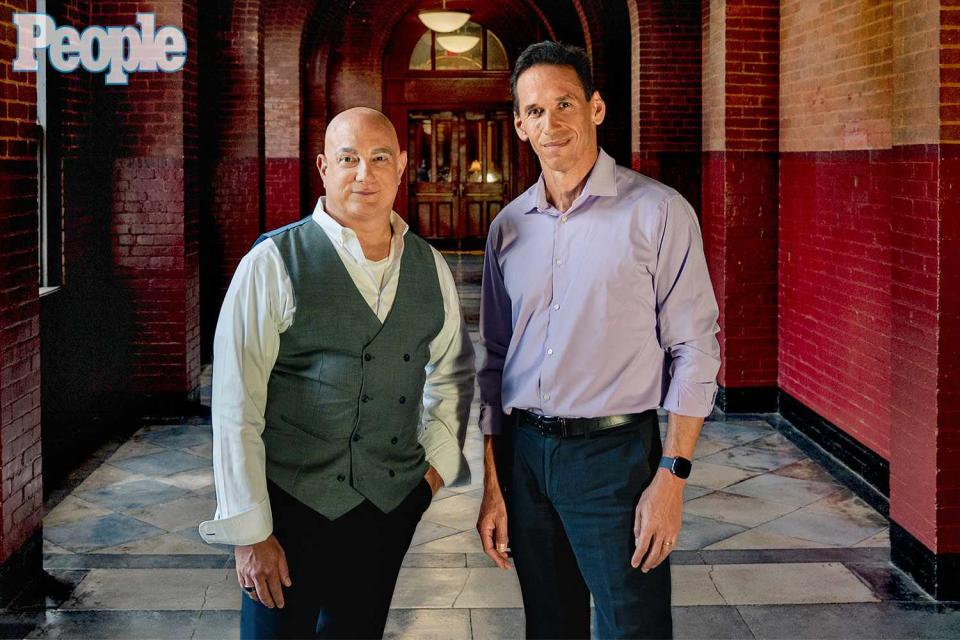
Shuran Huang
It was the first day of his senior year of high school, Sept. 7, 1988, when Marc Howard heard whispers in the halls that one of his friends, Marty Tankleff, was in trouble — not with the principal, but with the law. After brushing off the rumors as implausible, Howard was driving with an instructor through the streets of the Long Island suburb Belle Terre, N.Y., during his third-period driver’s education class when he spotted police cars parked outside the Tankleff house. He knew instantly that something had gone terribly wrong. “The drive back to school was very quiet,” he recalls.
Not long afterward, Marty was arrested and charged with the fatal stabbings of his parents, Seymour Tankleff, 62, and Arlene Tankleff, 53, at the family’s home earlier that day. After more than a year of awaiting trial, Marty was convicted of his parents’ double murder in 1990 and sentenced to 50 years to life, a case based on a false confession he gave to police after hours of grueling interrogation in which police lied to him, telling him his father said he’d done it.
Marty insisted he was innocent, never signed a confession and said he had been tricked into a false admission of guilt. For 17 years in prison he maintained that innocence — and Howard believed him. Howard dedicated his life to studying law and fought to prove Marty’s innocence, helping free him in 2007. “He sacrificed a portion of himself to save me,” says Marty, 52, who was exonerated after a years-long legal campaign led, in part, by Howard, 52, who is now a government and law professor at Georgetown University. “I owe him everything.”
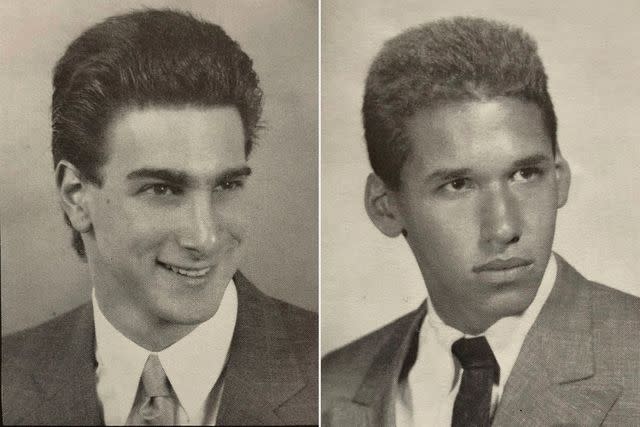
courtesy Marty Tankleff and Marc Howard
Marty Tankleff, left, and Marc HowardTogether, the childhood friends now work to free other wrongfully convicted individuals through a college course at Georgetown University — Making an Exoneree — which teaches undergraduates how to reinvestigate potentially wrongful conviction cases, produce documentaries of their findings and create social media campaigns calling for exonerations.
Since 2018, their students have helped overturn the convictions of seven innocent people. “This work has given me purpose in life,” says Marty, who is also an attorney. “We free the innocent.”
Howard was convinced almost from the start that Marty was not involved in the murder of his parents. An amateur sleuth, Howard soon discovered that Seymour, who had hosted a late-night poker game for several friends at home the night before his murder, had a noisy altercation with the last guest to leave that night — a business partner who reportedly owed Seymour $500,000 — whom police never considered a suspect.
Related: Man Wrongfully Convicted of New Orleans Rape Freed After 36 Years in Jail
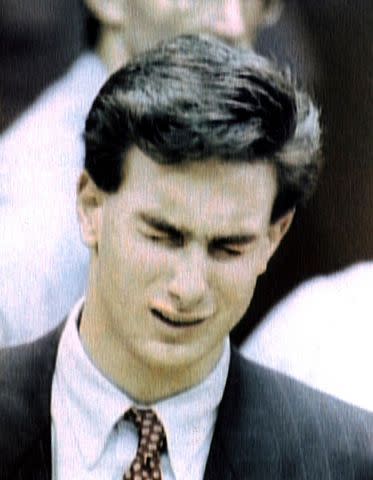
Dick Kraus/Newsday RM via Getty
Marty Tankleff reacts after being convicted of murdering his parents in a Riverhead, New York courthouse on June 28, 1990.Howard wrote about his findings in the Port Jefferson High School newspaper The Purple Parrot. “I went after the media for how they accepted the prosecutors’ lies as facts,” Howard says. “A high school newsroom was the only one that got the story right.”
Despite no physical evidence that he took part in the murders of his parents, a jury found Marty guilty on June 28, 1990. “I don’t think anyone can ever fully comprehend what it’s like to go in as a child accused of a crime that they didn’t commit and basically being told you’re going to get thrown away for the rest of your life,” says Marty, who considered his life over at the age of 19. “I was in a state of shock.”
More than a decade passed before he and Howard spoke again. “I wish, in retrospect, I had found a way sooner, but we lost touch and I felt helpless, so I kind of moved on with my life,” Howard says. “But there was always a part of me that was thinking about Marty.”
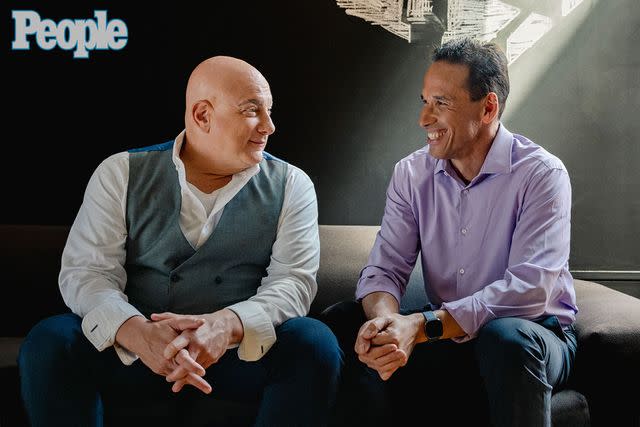
Shuran Huang
Related: Man Released from Prison After WNBA Star Put Career on Hold to Help Overturn Wrongful Conviction
In 2003 Howard, then a political science professor at Georgetown University, located Marty at New York’s Clinton Correctional Facility and wrote him a letter, eventually offering to become his legal advocate. “When you hear from somebody who you grew up with and have known your whole life, it’s touching,” says Marty. “But when it’s also somebody on the outside who believes in you and wants to help, it means everything.”
Howard visited Marty at several prisons as he helped build the legal case for reversing his conviction, preparing an amicus brief detailing evidence of his innocence confirmed and signed by 66 of their high school classmates. That brief was used as support in the decision by the Appellate Division of the New York Supreme Court to free Marty on Dec. 27, 2007.
Three weeks later, Marty began studying at Hofstra University and continued on to Touro University Law School where he got a law degree in the hopes of helping others who have been wrongfully incarcerated.
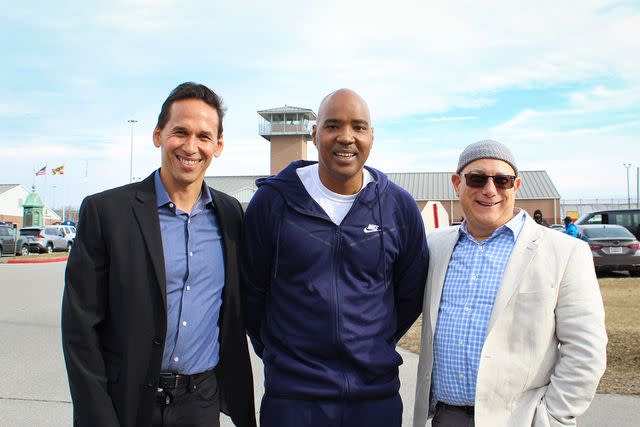
Georgetown Prisons and Justice Initiative
After more than a decade of seeing each other only in heavily guarded prison interview rooms, these days the friends meet up regularly for beers and burgers at Georgetown’s local bar, The Tombs. “He is one of the most jovial people; it’s hard not to have laughs when you’re with him,” says Howard of Marty, who practices law in New York, where he lives with partner Tara Whelan, 44. During the academic year, he commutes to Washington, D.C., to teach at Georgetown. The friends also find fulfillment in their work, which they plan to take to campuses nationwide.
Last Feb. 9, four years after launching the Making an Exoneree program, they walked out of the Jessup Correctional Institution in Jessup, Md., flanking inmate Kenneth Bond, 44, who was wrongfully incarcerated for 27 years. As Bond greeted wellwishers, Marty and Howard embraced. “It’s hard to measure the impact Marty has on my life,” Howard says. “His spirit, his positivity — it gives me hope. He’s my North Star.”
For more on Tankleff and Howard's story, pick up the latest issue of PEOPLE, on newsstands Friday, or subscribe here.
For more People news, make sure to sign up for our newsletter!
Read the original article on People.

